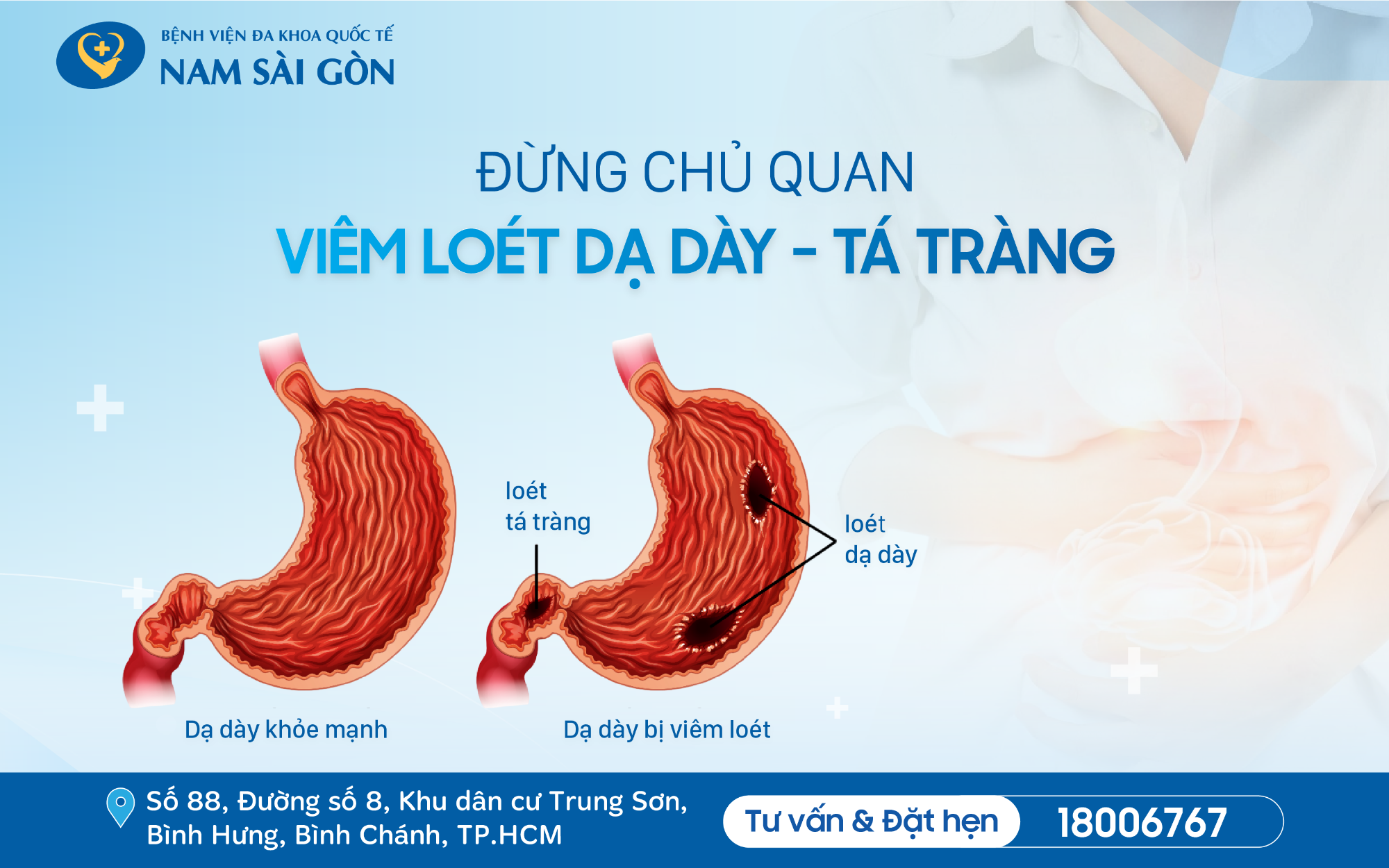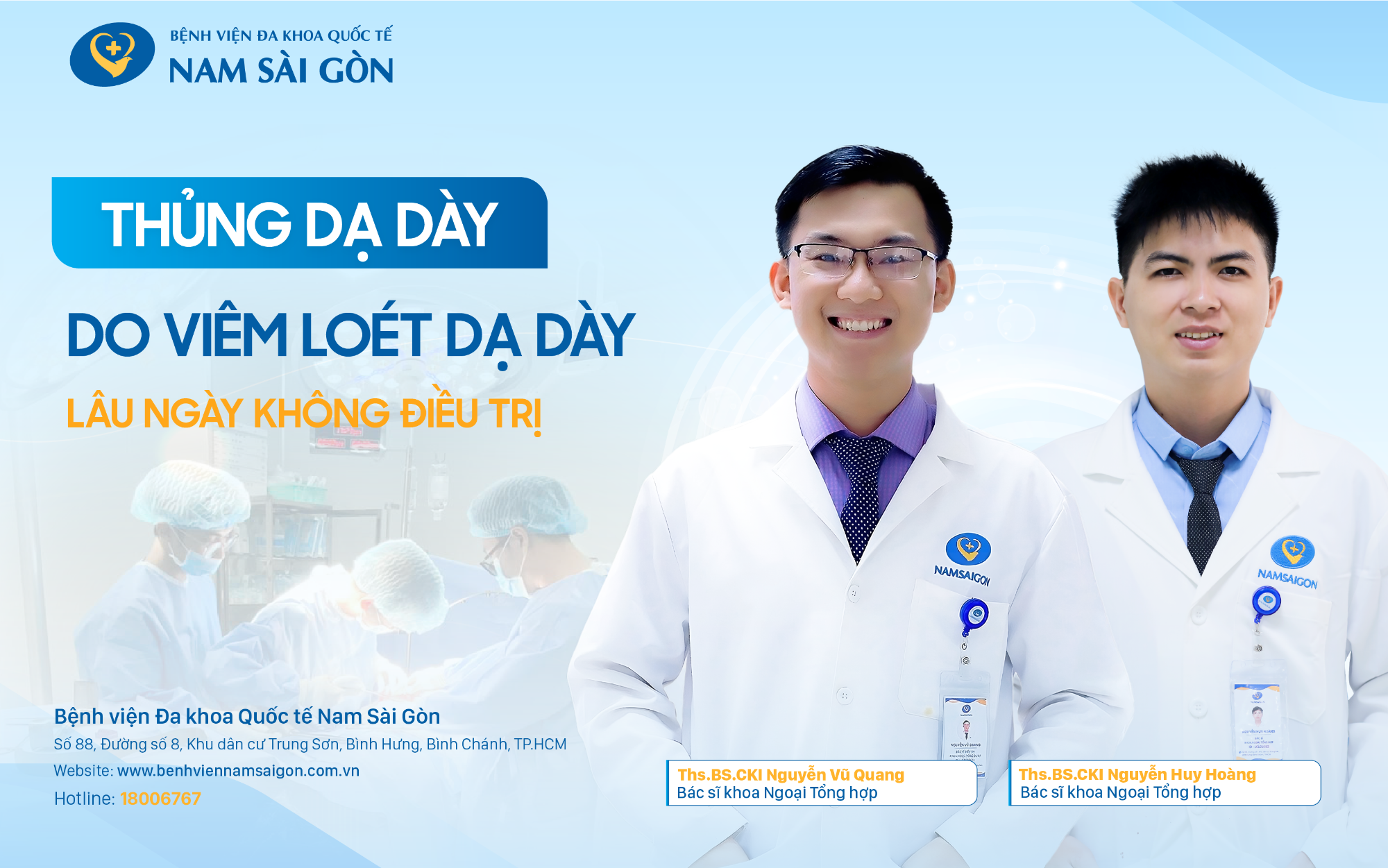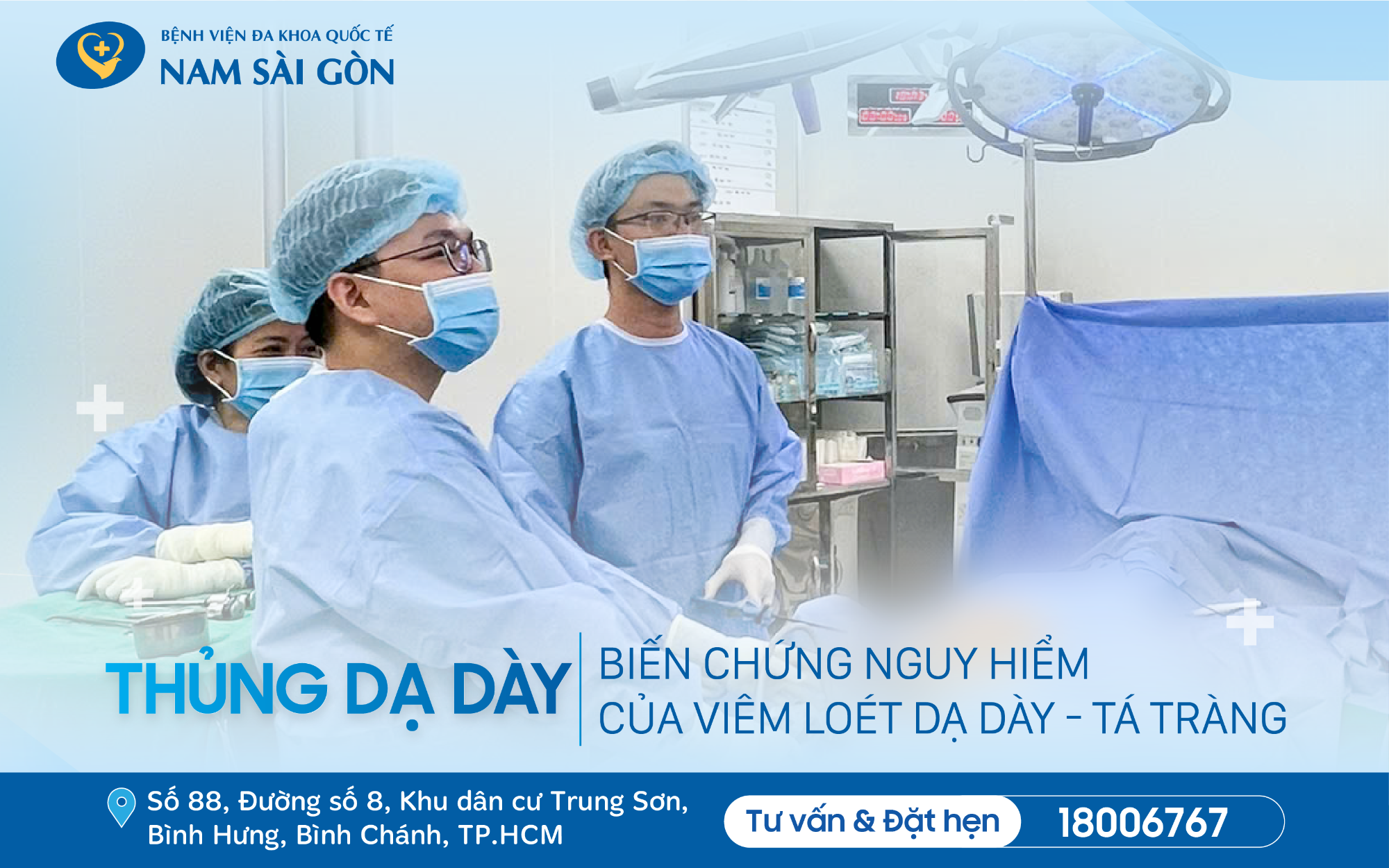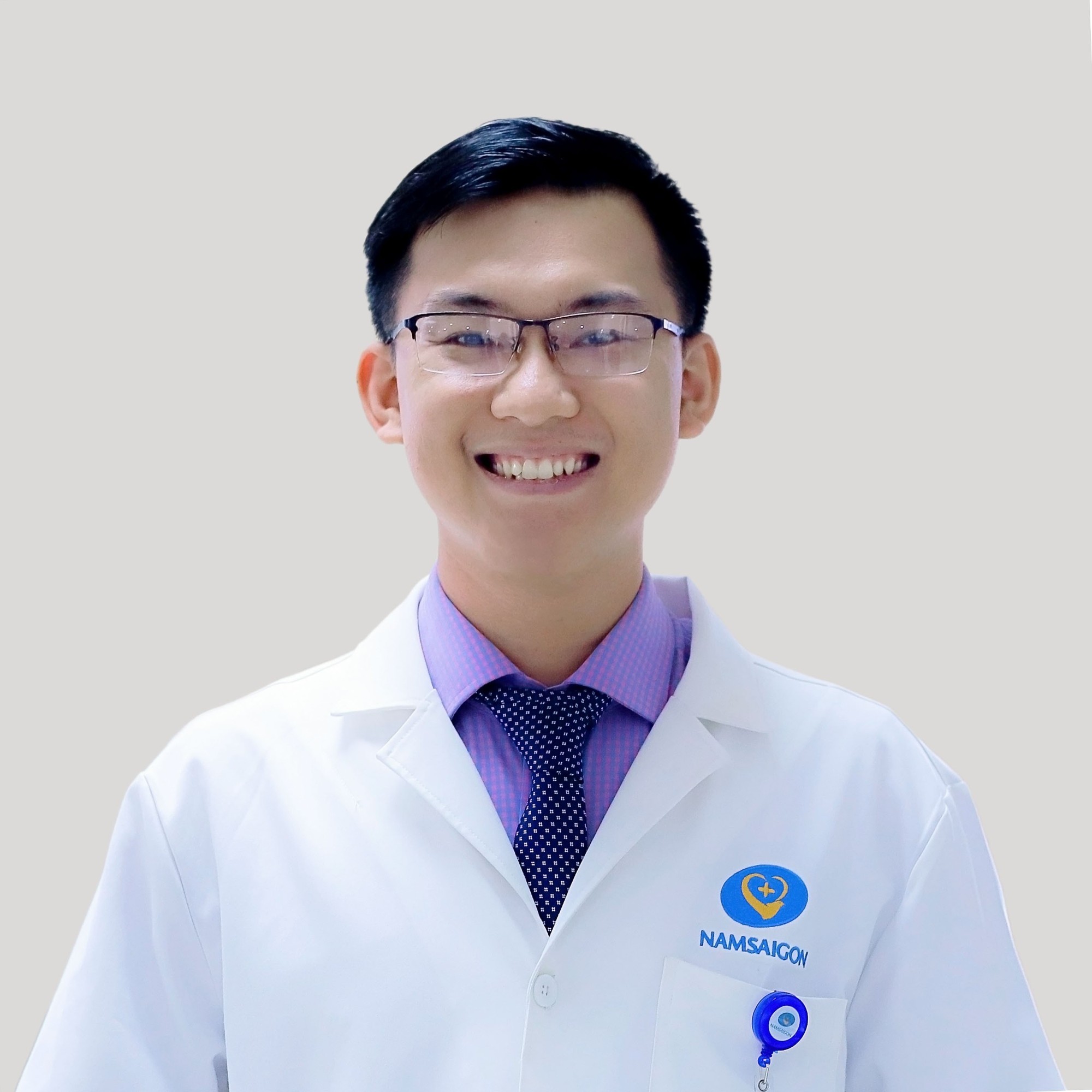LIFE-THREATENING GASTRIC PERFORATION FROM CHRONIC UNTREATED ULCER
-
Author: BỆNH VIỆN ĐA KHOA QUỐC TẾ NAM SÀI GÒN
-
04/12/2024
-
3,324
Thanks to the timely intervention of the medical team at Nam Sai Gon International General Hospital, a 20-year-old female student was successfully saved after being admitted in critical condition due to a perforated stomach.
M.A.K.L, a 20-year-old student from Phu Yen, had been suffering from chronic gastritis for years. The pressures of student life, an irregular eating schedule, and skipping meals had worsened her condition, eventually leading to a serious gastric ulcer.
LIFE-THREATENING GASTRIC PERFORATION FROM CHRONIC UNTREATED ULCER

The afternoon before admission, she suddenly experienced severe abdominal pain. Her classmates rushed her to a nearby hospital, where she was initially diagnosed with a ruptured ovarian cyst. However, her symptoms worsened, and the pain became more intense and widespread. Recognizing the urgency, her caregiver transferred her to Nam Sai Gon International General Hospital for further treatment.
Upon arrival at Nam Sai Gon International General Hospital, the patient was requested to undergo a CT scan. The result revealed a significant amount of free fluid and gas in the abdominal cavity — a classic sign of diffuse peritonitis caused by stomach perforation, requiring immediate emergency surgery.
According to Dr. Nguyen Vu Quang, MMed, Specialist Level I, the attending physician, after confirming the diagnosis, the family shared that the patient had a habit of self-medicating with painkillers during flare-ups rather than seeking professional treatment. This case clearly highlights the severe consequences of long-term misuse of pain medication.
Painkillers, especially nonsteroidal anti-inflammatory drugs (NSAIDs), commonly used for pain relief, can damage the stomach lining and significantly increase the risk of ulcers and perforation. Patients are advised to seek medical consultation before taking any medications.
Gastric perforation is a life-threatening complication of peptic ulcer disease. If not treated promptly, gastric acid and contents can leak into the abdominal cavity, causing widespread infection (peritonitis). Delay in treatment can lead to septic shock, multiple organ failure, and even death within hours — Dr. Quang shared.

Upon receiving the emergency call, the surgical team — Dr. Nguyen Vu Quang (MMed, Specialist Level I), Dr. Nguyen Huy Hoang (MMed, Specialist Level I), and Dr. Pham Truong Minh — immediately performed laparoscopic surgery to close the perforation and cleanse the abdominal cavity. Thanks to the team’s seamless coordination, the operation was successful and the patient was stabilized.
Previously, cases like this required open surgery with a long midline incision. Now, with the advancement of laparoscopic techniques, the procedure involves only three small incisions, offering many advantages: minimal scarring, better aesthetics, reduced pain, faster recovery, and lower risk of post-operative adhesions.

After surgery, the patient continued to receive medical treatment to reduce inflammation and protect the stomach. Then, she recovered well and was discharged after five days.
The patient’s caregiver shared: “At first, I hesitated to bring her here, worrying about the cost. But when I learned that Nam Sai Gon Hospital accepts public health insurance, we decided to go ahead. To our surprise, not only were the services excellent, but the staff and doctors were also kind and attentive. We are extremely satisfied with the care we received”.

Dr. Quang emphasized: “Gastric ulcers are not just about mild abdominal pain. Without proper treatment, they can lead to severe complications like bleeding or perforation”.
To prevent ulcers from worsening, patients should:
- Eat regularly and avoid skipping meals
- Limit spicy, sour, and acidic foods
- Avoid stimulants like alcohol, beer, coffee, and carbonated drinks
- Sleep sufficiently and manage stress
- Exercise regularly
- Get health checkups every six months if previously diagnosed with gastric ulcers
The above case serves as a serious reminder for everyone — especially those with digestive conditions. Unhealthy lifestyle habits and self-medication can lead to severe consequences and may even become life-threatening
Never take painkillers on an empty stomach. Doing so increases the risk of ulcers, gastrointestinal bleeding, and even perforation. Pain medication should only be taken after meals and under medical supervision. Never increase the dosage on your own to avoid dangerous complications.
Dr. Quang emphasized that anyone experiencing symptoms of gastric or duodenal ulcers — such as burning pain in the upper abdomen (epigastric region), belching, or acid reflux — should seek medical attention and receive timely consultation and treatment to prevent dangerous outcomes.
Nam Sai Gon International General Hospital accepts both public health insurance and private health insurance.
Nam Sai Gon International General Hospital
No. 88, Street No. 8, Trung Son Residential Area, Binh Hung Commune, Ho Chi Minh City.
Hotline: 18006767
info@nih.com.vn
Last updated: 14:58 20/11/2025






